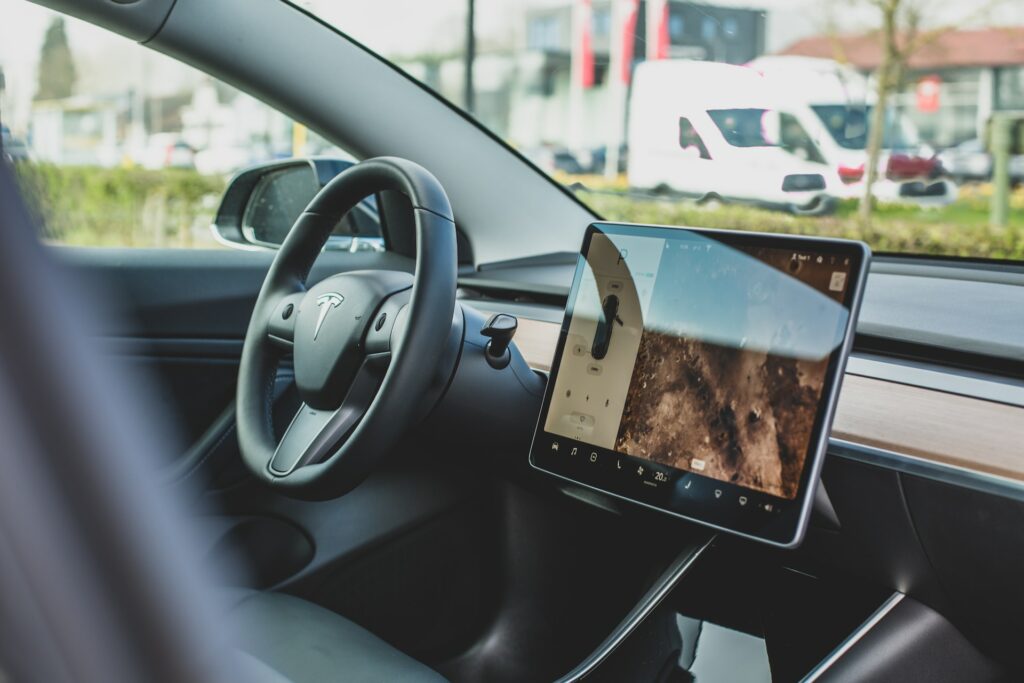As you buckle up for a journey into the future, imagine a world where your car does all the driving while you sit back, relax, and soak in the scenery—or even catch up on some work. The prospect is enticing, isn’t it? And that’s exactly where the future of AI in self-driving cars is taking us. With technological advancements moving at breakneck speed, this future is closer than you might think.
What Makes a Car Self-Driving?
A self-driving car is fundamentally different from the traditional automobile you’re used to. Controlled by complex algorithms and sensors, these vehicles don’t require a human operator. Cameras, radar, and Lidar, among other technologies, allow these cars to perceive the world around them.
The Role of AI in Self-Driving Technology

Artificial Intelligence (AI) is the beating heart of self-driving technology. It enables the car to make sense of the data collected by the sensors and make quick decisions. From avoiding obstacles to navigating through traffic, AI provides a level of accuracy that is—let’s face it—often superior to human capabilities.
The Current State of AI in Self-Driving Cars
Where We Are Today
As of now, we have semi-autonomous vehicles that assist the driver but are not entirely self-reliant. Companies like Tesla and Waymo have made significant strides, but there’s still a long road ahead before full autonomy is achieved.
Regulatory Environment
Legal frameworks are still catching up with technological progress. Governments worldwide are contemplating how to regulate self-driving cars to ensure public safety without stifling innovation.
The Evolution of AI Algorithms in the Automotive Industry
Deep Learning
Deep learning allows self-driving cars to improve their performance over time. By analyzing vast amounts of data, these machines become better drivers, reacting more effectively to unforeseen challenges.
Reinforcement Learning
Reinforcement learning is another AI technique that trains the self-driving car to adapt to new scenarios. Unlike deep learning, it doesn’t require massive datasets, making it a more scalable option for the future.
Safety Measures and AI Ethics
Collision Avoidance Systems
Advanced AI algorithms are developed to prioritize safety. Collision avoidance systems are increasingly sophisticated, reducing the risk of accidents significantly.
Ethical Dilemmas and AI
The question of ethics in AI is ever-present. How should a self-driving car react in a situation where an accident is unavoidable? Ethicists and programmers are grappling with these moral quandaries.
Economic Impact of AI-Driven Cars
Job Creation and Losses
While automation will inevitably result in job losses in some sectors, new roles in programming, data analysis, and other tech-focused fields are emerging.
Impact on Transportation and Logistics
Automated trucks and delivery vehicles powered by AI have the potential to revolutionize the transportation and logistics sectors, making them more efficient and cost-effective.
Infrastructure Changes and Smart Cities
Road Infrastructure
Future roads may have embedded IoT sensors to communicate with self-driving cars, ensuring smoother and safer journeys.
The Concept of Smart Cities
In smart cities, AI and IoT technologies could work in harmony with self-driving cars, creating an interconnected, intelligent urban environment.
Data Management and Cybersecurity
Data Collection and Privacy
Data collection is intrinsic to the functionality of self-driving cars. However, this raises concerns about user privacy and data misuse.
Cybersecurity Challenges
The reliance on software and data makes self-driving cars vulnerable to cyber-attacks, necessitating robust cybersecurity measures.
Environmental Impact
Emission Reduction
Self-driving cars, particularly electric or hybrid, have the potential to reduce emissions, contributing to a more sustainable planet.
Electric and Hybrid Cars
Electric and hybrid self-driving cars are likely to be the industry standard, further minimizing the environmental impact.
Public Reception and Adoption Rates
Consumer Sentiment
Early adopters are enthusiastic, but the general public remains cautious. Education and awareness will be key to widespread adoption.
Accessibility
Self-driving cars have the potential to provide increased mobility for individuals who are unable to drive, such as the elderly and people with disabilities.
How safe are self-driving cars?
Currently, self-driving cars are designed with multiple safety mechanisms to minimize the risk of accidents. However, like any technology, they are not infallible.
Will self-driving cars replace human drivers entirely?
It’s unlikely that human drivers will be entirely replaced in the near future, although the role of the driver will certainly evolve.
What is the biggest challenge for self-driving cars?
Regulatory issues and public acceptance are currently among the biggest challenges facing the adoption of self-driving cars.
How will self-driving cars impact the economy?
The economic impact will be multifaceted, including job creation in new tech sectors and potential job losses in traditional driving roles.
What role does AI play in the safety of self-driving cars?
AI plays a crucial role in safety mechanisms such as collision avoidance systems, making self-driving cars increasingly secure.
Are self-driving cars environmentally friendly?
While self-driving cars themselves are not inherently more environmentally friendly, their compatibility with electric and hybrid technologies makes them a sustainable option for the future.
Conclusion
As we speed into the future, it’s clear that AI will be the driver steering the course of the self-driving car industry. While challenges exist, the roadmap seems promising, and the destination—a world where self-driving cars are the norm—is worth the hurdles along the way.


